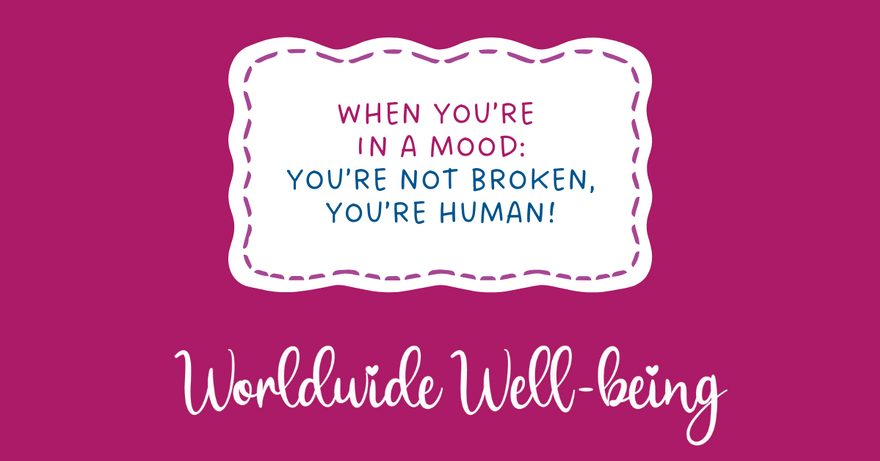
While waiting for chemo recently (which they didn’t end up giving me - but that’s a story for another day), a lovely woman came into the hospital room. She looked physically and emotionally exhausted, and as soon as she saw me, her face dropped.
She said, “I’m so sorry - I was hoping no one else would be here. I don’t want to bring your mood down.”
I just smiled and said, “You won’t. Cry all you like. I cry every time I come for treatment - it’s part of my regime, and I don’t mind it!” She smiled back.
That short exchange stayed with me. It got me thinking about how harsh we are on ourselves for feeling low, and how scared or frustrated we can get when we find ourselves in a “bad mood.” Even more than that, how we carry this common misunderstanding that we can affect others with our mood - or they can affect ours.
Moods Aren’t the Problem - We Just Think They Are
As humans (and yes, that includes every one of us), we all experience mood fluctuations. They can shift quickly, arrive unexpectedly, and sometimes feel like they’ve come out of nowhere. But the problem isn’t the mood - it’s how we treat it.
We try to police our moods: shift them, change them, fix them. But what if we didn’t need to do any of that? What if we saw them as simply part of being human?
Your Mood Says Nothing About You - Other Than That You're Alive
Moods come and go. That’s one thing we do know for sure. They’re transient, always shifting, and never fixed. A low mood doesn’t mean you’re broken or that something’s wrong with you - it just means you're experiencing a wave of thought.
Think of the sky. We don’t judge it for letting the rain fall through it. The sky is still the sky - it’s just having a temporary experience. And just like the rain, even a “bad” mood can be helpful depending on the perspective. If you’re heading for a picnic, you might see rain as a disaster. If you're a farmer with dry crops, you might be incredibly grateful for it.
The Shift That Changed Everything for Me
Years ago, I stopped labelling moods as good or bad. They became just experiences - temporary, like a weather pattern I didn’t need to fix. In fact, I started to appreciate so-called bad moods. They reminded me that my thinking was off, and it was time to slow down, lower expectations, and look after myself.
Now, a low mood is my little signal that it’s time for me time.
Moods = Reflections of Thought
We’re only ever feeling our thinking. Our moods reflect the thoughts we’re giving the most attention to - and in turn, those moods shape how we see the world.
When we’re in a low mood, the lens through which we view life is clouded. And that’s not the time to start solving problems or making big decisions.
If You Remember One Thing…
When you’re in a low, insecure, or “bad” mood - just be. Let it pass. You don’t need to do anything about it. Definitely don’t try to figure life out from that place.
As the old saying goes, trying to sort your life out in a bad mood is like pissing in the wind - and no one wants to get piss wet through. 😉
Want to explore this more? Inside my membership, I answer real questions like this every week with personal voice note replies you can listen to anytime. We explore monthly focus topics, welcome guest experts, and gather for live coaching calls. If you're ready to stop fearing your moods and start understanding them, come join us.


Comments